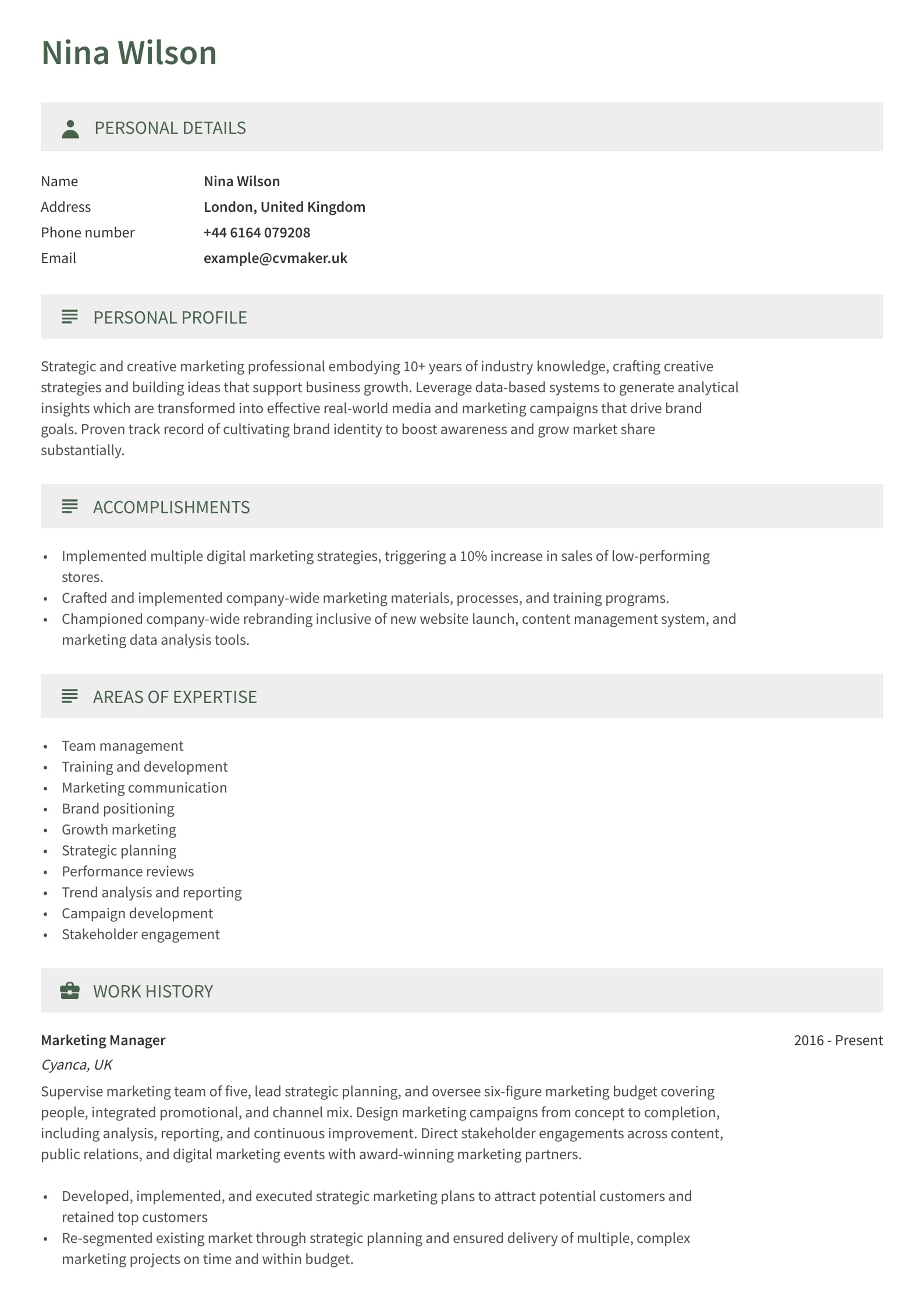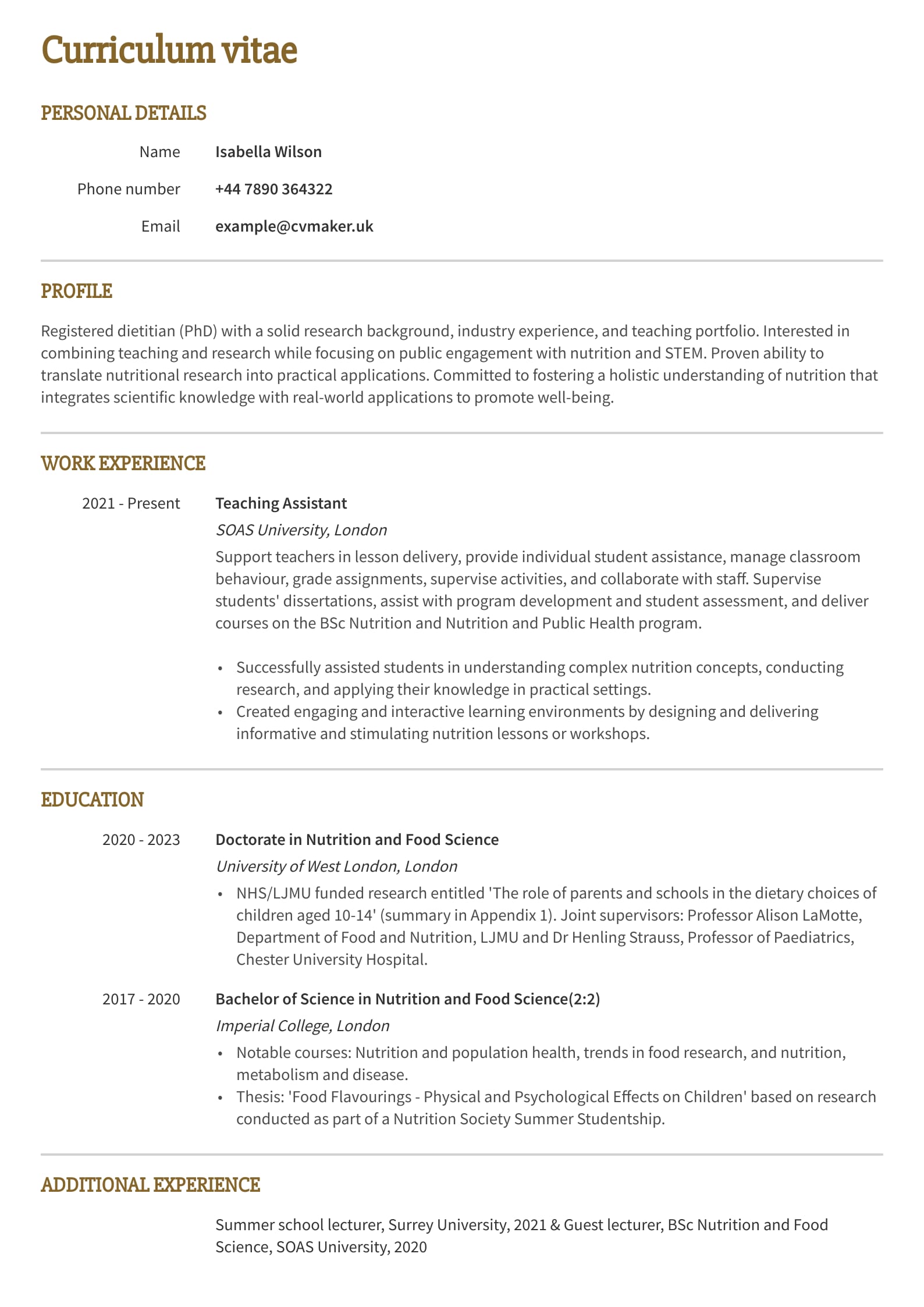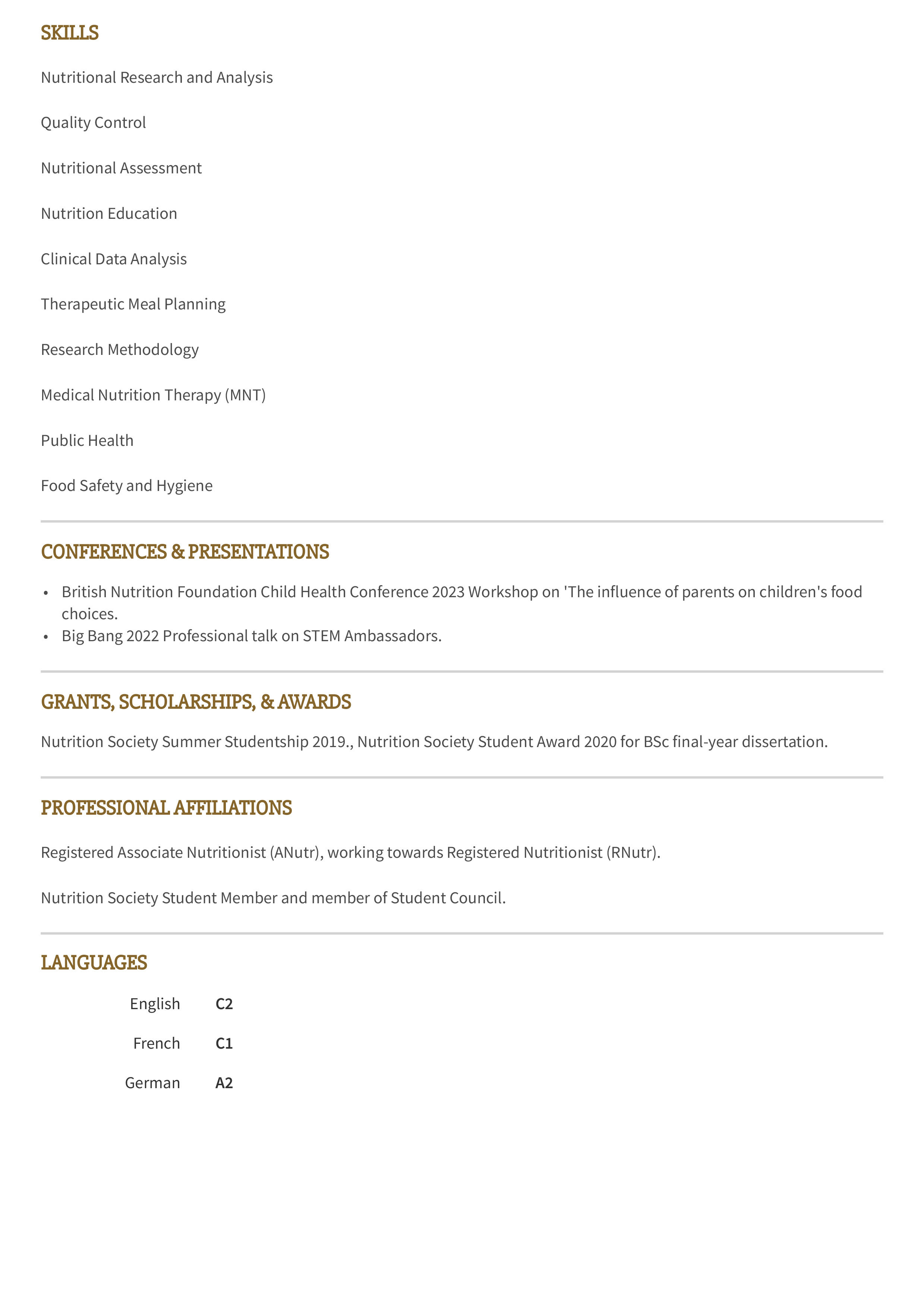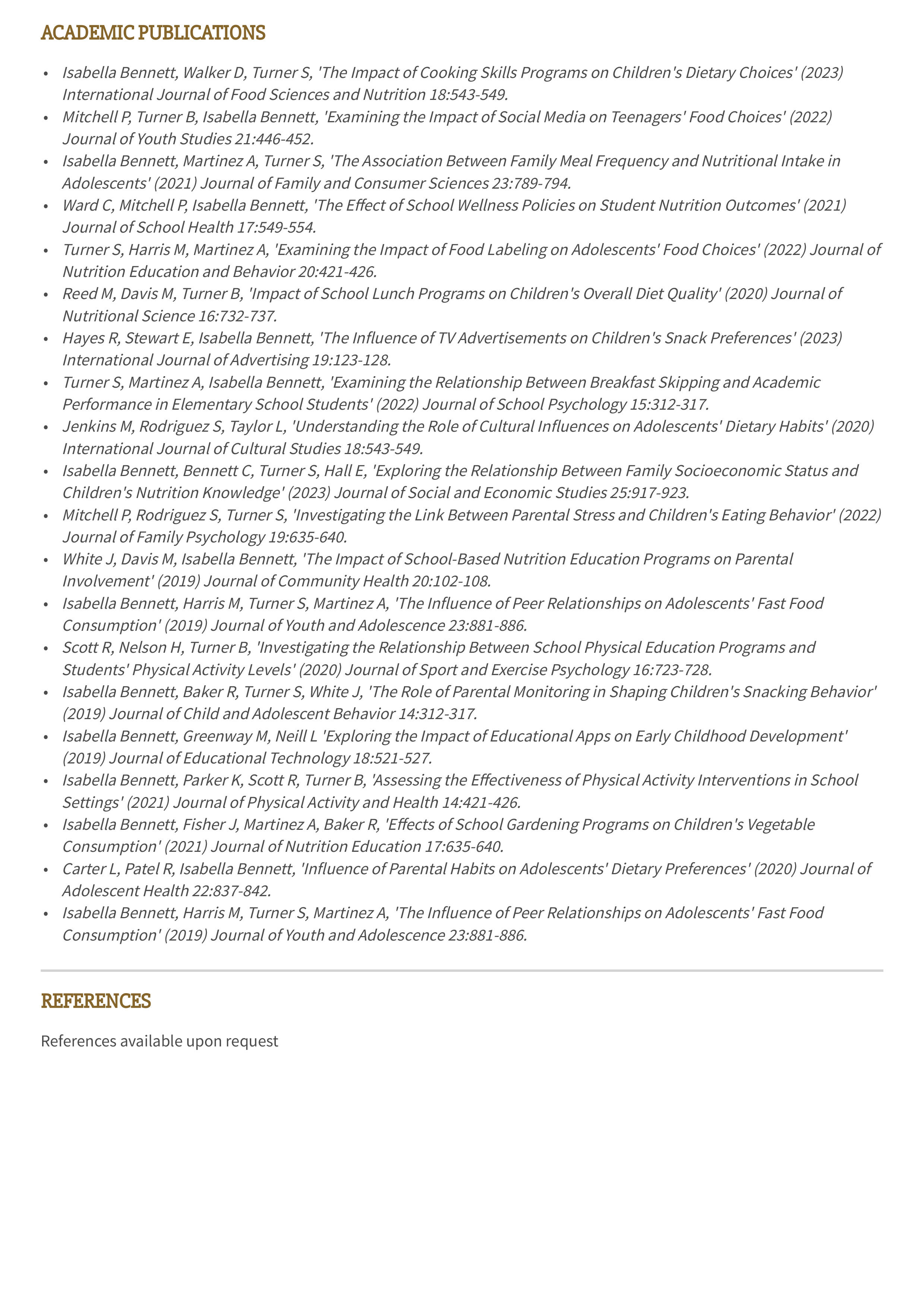A common question when trying to write a good CV is: how long should it be? You might see conflicting advice, like "it should always be one page" or "three pages is perfect," but the truth is, it depends. The ideal CV length varies based on the content, the industry, and the information you need to include according to your profile and experience level. One key factor to keep in mind is that your CV needs to pass applicant tracking systems (ATS), so formatting and structure are crucial.
Interesting fact
Research shows recruiters typically spend 7-9 seconds reviewing CVs during the initial screening. However, once candidates are shortlisted, they can spend closer to 20 minutes evaluating those CVs in detail.
Whether you're entering the workforce or are a seasoned professional, let's explore the optimal CV length based on your career stage.
What’s in this guide?
How long should a CV be in the UK
What’s the ideal CV length for your industry
Templates for different CV lengths
Mistakes to avoid when formatting your CV

Ideal CV length in the UK
An average CV typically falls between one and two pages, though, for better or worse, there's no universal rule for its length. Here are a few tips to help you craft it effectively:
A one-page CV works best for providing quick but professional overviews, where the information is straight to the point and tailored to the specific position you’re applying for.
A two-page CV is perfectly acceptable for those with more extensive experience or simply when clearer formatting enhances readability.
A three-page CV can be suitable for senior positions, academic roles, or highly specialised candidates.
A three-page CV or more may apply to fields like academia, medicine, or government, where even longer CVs are more common. For example, an academic CV often includes research publications, conferences, awards, or other achievements that can take up more space in the document.
Pro tip
Avoid cramming excessive information into a single page. Place the most important details at the top of your CV and all your sections in reverse chronological order for clarity.
For inspiration, refer to CVMaker's collection of CV examples to help you get started. Additionally, we designed easy-to-read CV templates to improve your job prospects.
One-page CV template in the UK

Download this free project manager CV example in PDF.
Matthew Lewis is an experienced and qualified Project Manager who has opted for the Erasmus template. This is a one-page CV sample with a modern CV design. His CV is simple, easy to read, and, most importantly, tailored to his career goals.
See our project manager CV for more inspiration.
Two-page CV template in the UK 

Download this free marketing CV example in PDF.
This marketing CV example is from a digital marketing professional with over ten years of experience. This is a two-page CV sample with a one-column layout and a simple CV template. She is a leader with a dedicated and innovative mindset who knows how to drive sales growth and effectively communicate with diverse customers and stakeholders.
Refer to the marketing CV or digital marketing CV examples for more details.
Three-page CV template in the UK



Download this free Academic CV example in PDF.
Isabella Bennett, a highly accomplished Registered Dietitian, selected the California CV template to showcase her expertise. This is a three-page CV sample with a one-column format and easy-to-read font. She seamlessly combines teaching, research, and public engagement in nutrition and STEM fields. Her solid research background and industry experience enable her to develop tailored dietary plans.
See our academic CV example to learn more about this format.
When to opt for a one-page CV
Set sail and adopt this format if you are writing a CV with no experience, a CV for a first job, a recent graduate, or exploring a new industry. Whether you're a school leaver seeking to enter a professional world, an undergraduate, or looking for a career change, this CV length works especially well for landing entry-level roles when a job description asks for it. A one-page CV allows you to briefly present your education, work history, areas of expertise, strengths, and notable achievements without overloading it with unnecessary details.
Pros:
Concise and easy to read.
Ideal for entry-level positions or those just starting out their careers.
Provides a brief snapshot of your qualifications and expertise.
Cons:
It may not provide enough detail for more experienced candidates.
Can feel overwhelming, with too much information crammed into just one page.
It may not always be suitable for executive roles.
See our article on how to list achievements on a CV for more information.
When to opt for a two-page CV
Unfold your career book and imagine adding more chapters to your story: that's the two-page CV. It's perfect if you've held multiple roles or wish to highlight skills tailored to a specific position. This CV format is the ideal choice for mid-career professionals wondering how long a CV should be, providing space to detail professional history, key achievements, and a broad range of skills. And it’s particularly beneficial for roles that require an extensive project track record, offering more depth than a single-page CV.
Pro Tip
The difference between a one-page CV and a two-page CV often comes down to formatting, rather than the amount of information included. Other times, it’s about adding extra details beyond the must-have sections. So, don’t treat this as a strict rule and focus on what works best for your specific situation.
Pros:
Provides more space to showcase your skills and experience.
Ideal for jobseekers with extensive work experience.
Allows the inclusion of additional sections.
Cons:
It may be too long for some employers.
Requires careful editing to avoid redundancy.
It may not always be suitable for executive roles.
Explore our Manager CV example and Accountant Manager CV example for inspiration.
When to opt for a longer CV (3 pages or more)
Expand the scope of your CV by presenting your experiences and portfolio with professionalism. This format is ideal for experienced professionals in executive roles, researchers, or students applying to prestigious universities. It provides an excellent way to showcase publications and highlight areas of passion and expertise.
Pro Tip
When crafting a longer CV, keep your content engaging and filter the information carefully, focusing on what matters, instead of typing everything that comes to mind.
Pros:
Ideal for exceptional candidates or specific industries (like academia or medicine).
Provides ample space to showcase extensive experience and qualifications.
More suitable for CVs with a record of research projects, publications, and conferences.
Cons:
It may be overly long for some roles and employers.
This CV length might make it difficult to pass through the ATS.
It may not be suitable for entry-level positions.
How to format a CV to have the ideal length
Some experts suggest that an ideal CV length should typically fall between 1-1.5 pages, regardless of your career stage. This range ensures you avoid having too much or too little content on a potential second page. Here, a smart strategy is to craft a comprehensive master CV to capture all your experience, and tailor a concise, job-specific version for individual applications.

To determine if your CV is hitting the mark, try this exercise:
Cover your CV and reveal one line at a time.
For each line, ask yourself, “What value does this add for the person reviewing it?”
If the value isn’t immediately clear to you, it definitely won’t be clear to the employer, and you risk losing their attention.
Rewrite lines that lack impact or relevance to highlight specific skills or qualifications that align with the job description, or simply remove them if they don’t add value.
By systematically revising every line, you’ll naturally achieve the ideal length for your CV while tailoring it perfectly to the role you’re targeting.
Pro tip
Save space by focusing only on the key points of your education, skills and experience. Avoid leaving large blank spaces and aim for a clean, simple format, instead of using overly creative templates with distracting elements. If you're struggling to edit your CV, ask yourself if certain information really sells you. If it doesn't, cut it out.
How to reduce CV length
If your CV feels too lengthy, needs to outsmart ATS, or could use a modern refresh, here are three simple tips to help you streamline it and gain a competitive edge.
1. Exclude irrelevant details
It’s better to avoid including photos, hobbies, salary information of previous roles, or personal details that do not relate to your industry or job target. This will keep your CV concise and focused on the most important information. See how to improve your CV to nail it from start to finish.
2. Tailor your CV to one job
Try to use specific keywords from the job description in your CV to emphasise your skills and experience. While AI can assist with CV writing, it’s essential to add your personal touch to make it unique. This approach makes it easier for employers to quickly identify how you align with the job requirements.
For example, if you’re applying for a digital marketing position, you might want to emphasise your experience with social media marketing, content creation, and analytics. If you’re applying for a software developer position, it can be beneficial to highlight your experience with specific programming languages, software development methodologies, and tools.
3. Use consistent formatting
Short paragraphs, bullet points, and a professional font can make your CV clear and easy to read. Highlight your accomplishments using action verbs and present your hard skills in a clean, structured format to create a polished and impactful impression.
Key takeaways
CV length should match your experience and industry. It's not about how many pages your CV has, but about striking the right balance between length and content.
Create a master CV with all your experience, then tailor a concise version for each job application.
Choose quality over quantity. Every line should add value and align with the job you’re targeting.
Use a clear structure, short paragraphs, and keywords from the job description to ensure your CV is readable and ATS-friendly.
![]()
Next steps?
After crafting a compelling CV, the next step is selecting a matching cover letter template. If writing isn’t your strong suit, our CV Writing Services are here to help. Whether you need to enhance your existing career documents or create them from scratch, we’ll ensure they’re polished and professional. We’ll also guide you in choosing the ideal CV and cover letter length, giving you the confidence to apply for your dream job and secure that all-important interview.

FAQ
How long should a graduate CV be?
A graduate CV should ideally be one page, especially if you're entering the workforce or applying for entry-level roles. Focus on showcasing your education, internships, volunteer experience, relevant projects, and core skills. Keeping your CV brief ensures hiring managers can quickly identify the job’s requirements and think of you as the right fit for the role.
Explore the graduate CV example article for more details.
How long should a CV be for a senior position?
For senior-level positions, we recommend prioritising relevance and results-driven content over length. Typically, a CV for a senior position can be around 1-2 pages long. However, if you have extensive experience and exceptional achievements, extending it to 3 or more pages is acceptable.
What to include in a one-page CV?
In a one-page CV, make sure to cover the basics. Include your personal details and statement, your educational background, key hard and soft skills, and your most recent work experience with clear and structured duties and accomplishments.
What to include in a two-page CV?
With a two-page CV, you can delve into more detail. In addition to listing your education and work experience, elaborate on your achievements, including expertise on specific projects or volunteer work. If applicable, consider including sections for courses and certificates, languages, references or awards, to highlight your candidacy.
How many words should a CV be?
While there’s no strict word count, a well-crafted CV typically ranges from 300-500 words for a one-page CV and around 600-800 words for a two-page CV. That said, avoid including outdated details or going off-topic, as hiring managers and employers value brevity.
How long should a personal statement be on a CV?
If you’re worried about the length of your CV and unsure how to craft your personal profile summary, aim for 3-5 concise lines. Highlight your professional background, key strengths, and career objectives, ensuring they align with the role you’re pursuing.
Can a CV be 2 pages?
Yes, a CV can be 2 pages. It’s actually the standard length for most jobseekers in the UK. Employers expect a second page if you have relevant experience, skills, or qualifications to show. Just make sure the content is clear, relevant, and easy to read. For students or school leavers, 1 page is usually enough.
)



)

)
